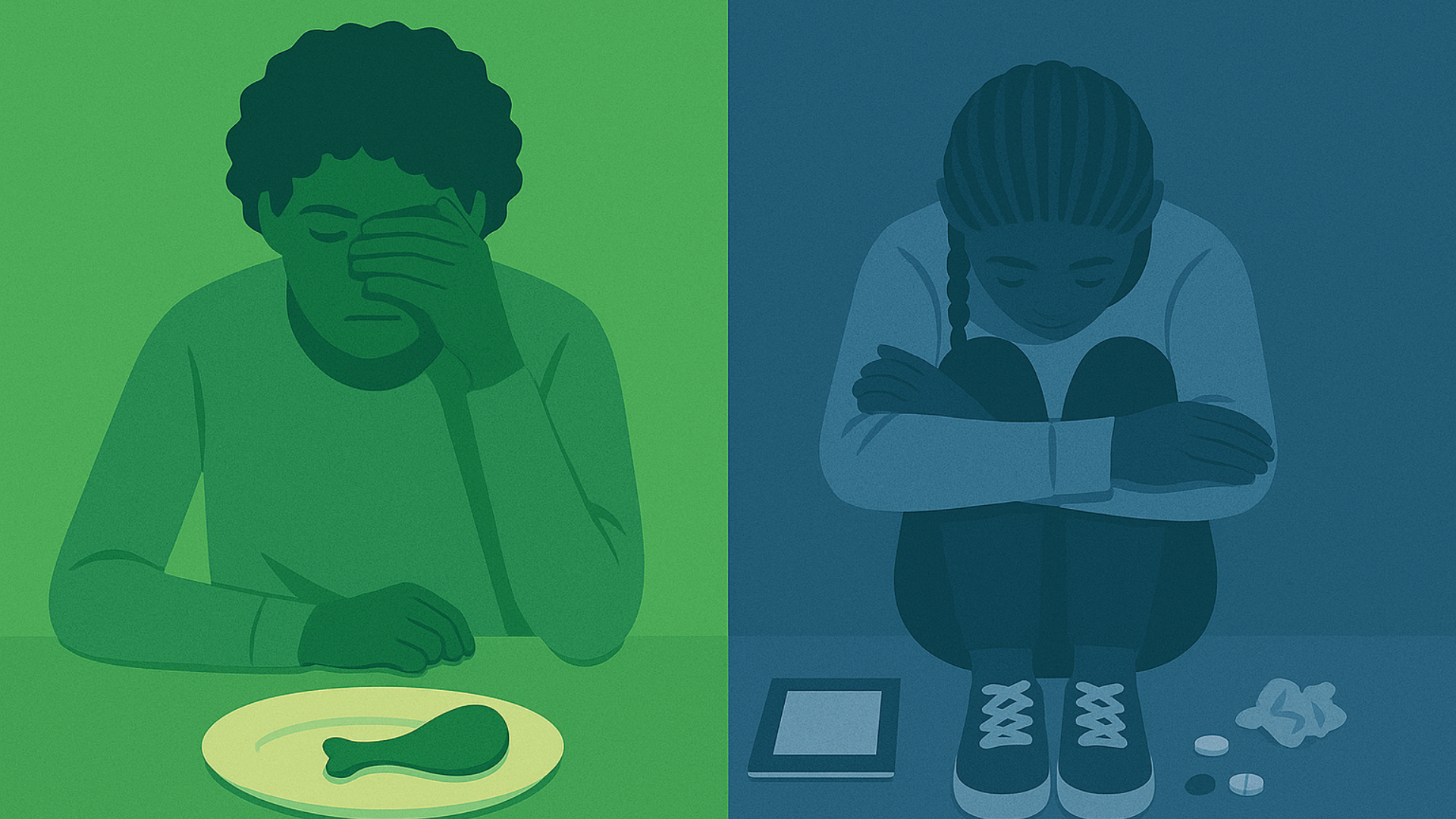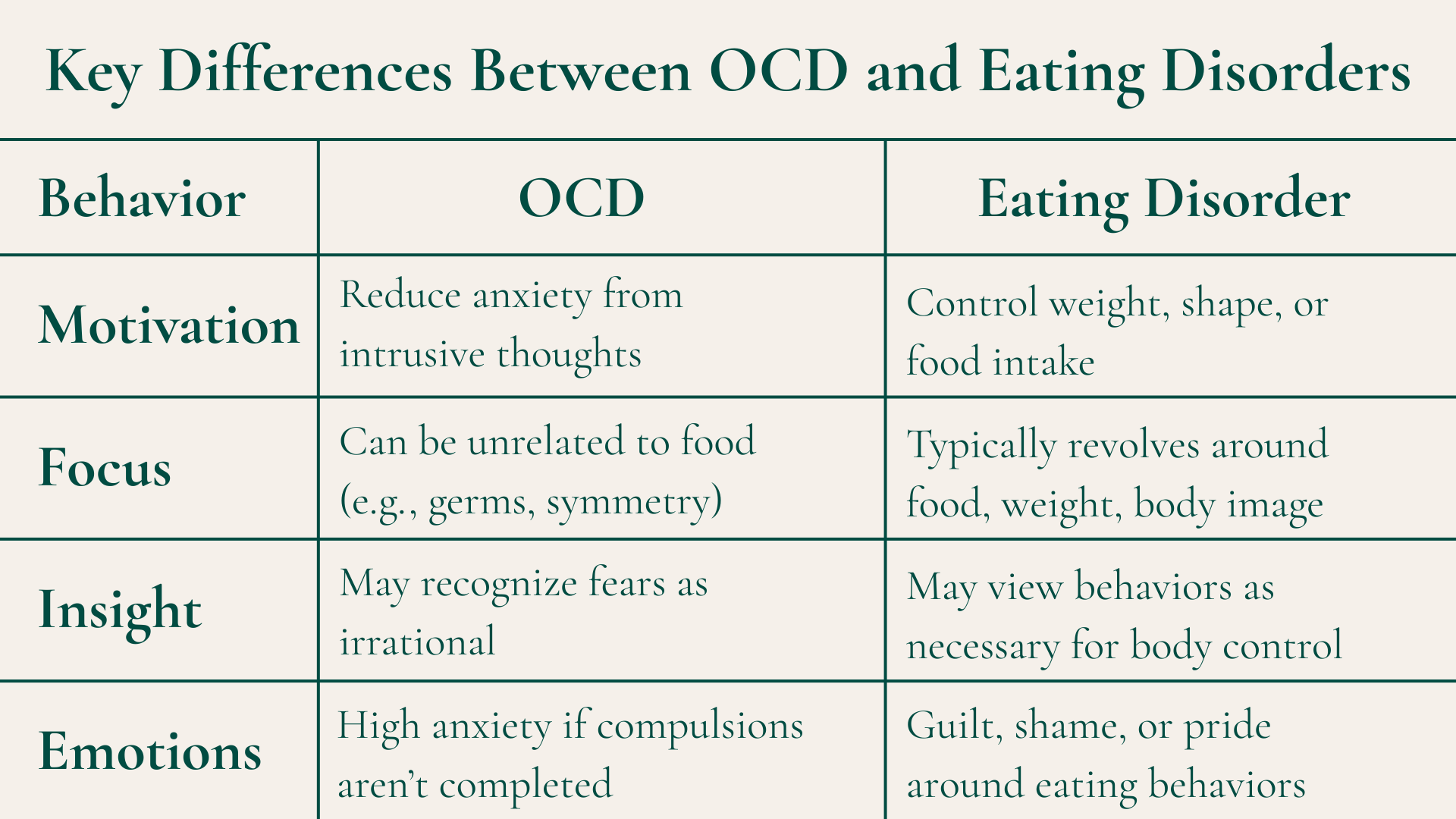Is It OCD or an Eating Disorder? What Parents Need to Know

As a parent, noticing alarming behaviors around food or routines in your child can raise some important questions. You might be asking yourself, “Is this an eating disorder, obsessive-compulsive disorder (OCD), or something else entirely?” Understanding the signs and differences between these disorders is key to getting your child effective, timely treatment.
In this blog, we’ll break down the overlap between OCD and eating disorders, what signs to watch for, and how to get professional help. If you're a parent wondering “Is my child’s eating disorder actually OCD?” or “OCD vs eating disorder in teens,” know that you’re not alone and you’re in the right place to find specialized care for your child.
What Is OCD?
Obsessive-Compulsive Disorder (OCD) is a mental health condition where unwanted thoughts (obsessions) cause anxiety, leading to repetitive behaviors (compulsions) intended to ease that anxiety. OCD can be focused on any subject. Common obsessions include contamination, perfectionism, scrupulosity, and harm, but sometimes, the content of obsessions can be focused on food, body image, or weight.
What Is an Eating Disorder?
Eating disorders, like anorexia nervosa, bulimia nervosa, binge eating disorder, and avoidant/restrictive food intake disorder (ARFID) involve disturbed eating behaviors and intense concerns about body weight or shape. These conditions go beyond dieting or “picky eating” and can become life-threatening without professional intervention.
The Overlap: Why It Can Be Confusing
OCD and eating disorders often share similar symptoms:
- Ritualistic eating (e.g., needing to eat foods in a certain order or at a certain time)
- Rigid rules about food (like only eating certain food groups or certain amounts of food)
- Excessive checking (like weighing food or body or repeated checking of expiration dates or thorough cooking)
- Avoidance behaviors (like avoiding carbs, fats, or other food groups or avoiding places or objects that can trigger obsessions)
- Distress when routines are disrupted (either around mealtimes or exercise routines)
So, How Can You Tell the Difference?
Use the following chart to compare and contrast symptoms of OCD and eating disorders.

Signs Your Child May Be Struggling
Look for these warning signs of OCD or an eating disorder in children and teens:
- Refusal to eat certain foods for unclear reasons
- Rigid rituals during mealtimes
- Extreme anxiety about weight gain—even if underweight
- Repeated checking of body or mirror
- Preoccupation with "safe" or "clean" foods
- Withdrawal from social situations involving food
If these behaviors are increasing in frequency or interfering with daily life, it’s time to seek help.
Can a Child Have Both OCD and an Eating Disorder?
Yes, co-occurring OCD and eating disorders are more common than you might think. Studies show that up to 60% of people with anorexia nervosa also experience symptoms of OCD. When both conditions are present, treatment not only becomes more complex, but also more urgent.
Why Early Intervention Matters
Whether your child has OCD, an eating disorder, or both, early diagnosis and treatment improve outcomes significantly. These are not “phases” or “habits to outgrow”, they are serious mental health conditions that deserve expert care.
How Thrive Wellness Can Help
At Thrive Wellness, we specialize in treating OCD in both teens and children, as well as eating disorders in adolescents and teens. Our integrated, evidence-based approach supports the whole child with compassion, expertise, and personalized care.
We understand how complex these disorders can be, but we’re here to guide you every step of the way.
When to Contact a Mental Health Professional
If you’re asking yourself:
- “Is my child’s food fear OCD or an eating disorder?”
- “Why is my teen obsessed with clean eating?”
- “Should I worry about my child’s eating rituals?”
It might be time to look for professional help. Additionally, if your child’s behaviors around food or routine are interfering with their ability to move through their everyday lives, it’s time to look into specialized treatment. Accommodating your child’s disorder is not only exhausting- it makes the behaviors more ingrained, intensifying them. But with early intervention and dedicated care, recovery is possible- don’t wait to reach out.
Contact Thrive Wellness for a confidential consultation with our compassionate admissions team. Whether it’s OCD, an eating disorder, or something else, we’ll provide your child with an expert diagnosis and create a clear path towards recovery.








